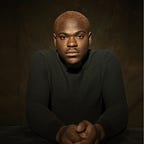To Have People.
In January of 2020 when I had an opinion piece/personal essay published in The New York Times, I was fairly certain of two things. That my career would get a good boost and that I would make a lot of friends, expand my circle and come to understand what it means to be part of a group, or groups, or a lovely, cozy twosome at best.
I was 19 at the time, fresh-faced and jumping into the world of journalism, without a university education, and determined to get my life exactly how I wanted it; picking my friends and being the best person I can to them while having the support I have always wanted, but never quite had. Since that time, however, only one of those certainties have happened as predicted.
My NYT publication did give me a good boost career-wise and even if it didn’t always help me score gigs, it was a strong and unshakeable reminder that at 19, I was published in a publication I was sure I wouldn’t have a byline in for at least three to five years to come. The second certainty, however, would turn out much differently.
When I shared the piece on my Twitter, my followership doubled. For the stretch of a few days, the piece was still getting retweeted and in many ways, that visibility began to alter the existing relationships I had with the people in my life.
People who barely spoke to me but were vaguely aware of my existence suddenly became very interested in me. Some of the people I did know who never seemed to care very much suddenly began to pay attention. In my mind, it was both exciting as it was emotionally draining. I suspected it and hated that things could possibly happen that way. In my mind, I was certain that I was liked because it looked good, but not because I was genuinely cared for. For a long time, I would look at the people who tried to be there for me in one way or another with distrust and a cold, intentional removal and I never made an effort to be friends with them.
Thinking about it now, I try to imagine how I had thought things would turn out and I come up with nothing. But at the time, I only wanted to write more and be out there more. I wanted the visibility that attracted attention and resented that attention when it arrived.
Naturally, all of this I imagine stems from years of always being the one looking in from the outside, or looking out, while clutching an empty room and a messy, perpetually preoccupied mind. I did not grow up having a best friend so I had created, I think, pre-arranged ideas of how friendships are while being oblivious to how they might begin and what they might mean. So I think the education was lacking and that a persistent fear of not being liked, perhaps because I didn’t think I could be liked, sat right where my desire to bond with other people should be.
For a while, I realized that it felt easy to let people, friends go. I have experienced a fair share of people, family, loved ones, leaving abruptly without explanation or doing it with explanations so logical and sensible that the unchanging body of the situation is the only thing that stuns me. So I sort of grew a skin, thick enough to keep friendships from sipping in and slippery enough to let the ones that have managed to be for a short while, slide right off my skin. I have been successful for the most part and it makes it easy not to expect anything from anyone; care, kindness, basic decency.
I believe the point here isn’t about why friendships are important, for some people, I have noticed, I think it is. But I would say, it is also about how much kindness I am willing to give myself. How much trust I am willing to hand over to other people in their intentions. For the number of friendships I did not care about or the ones whose ending I subconsciously (or otherwise) contributed to, I have experienced bits of kindness that threaten to bring tears to my eyes. I have experienced people willing to be there for me, because, just because and perhaps for the value of the association, which I think now, is also fine, a point of attraction and not necessarily a foundation on which the friendship rested, as I had imagined.
My mantra is, I don’t know how friendships work. I often say this with a tingling sense of pain and pride. Pain, which is an obvious reaction, and pride because the concept of not knowing how to be friends with other people, to the extent to which I imagine that entails, seems awfully fascinating to me. Fascinating and easy.
But also at the end of the day, I think this is primarily about fear. And how much of it I am willing to sort through, acknowledge, and allow to seep out of my thick, thick, skin.
